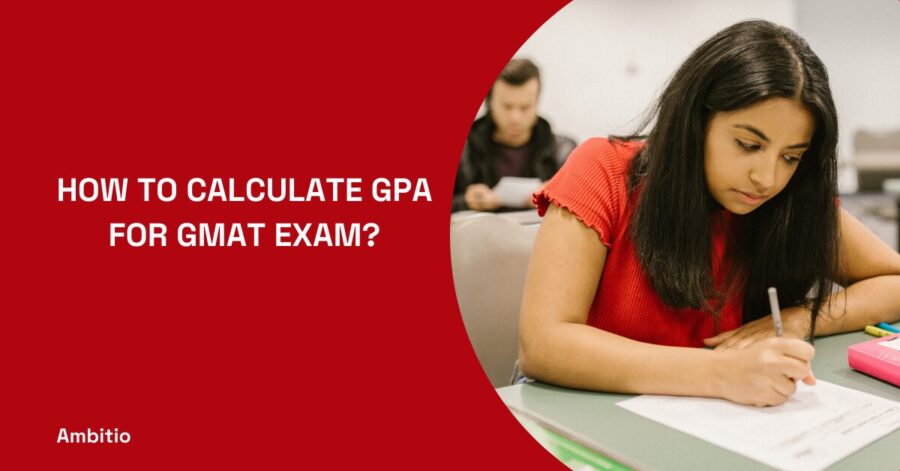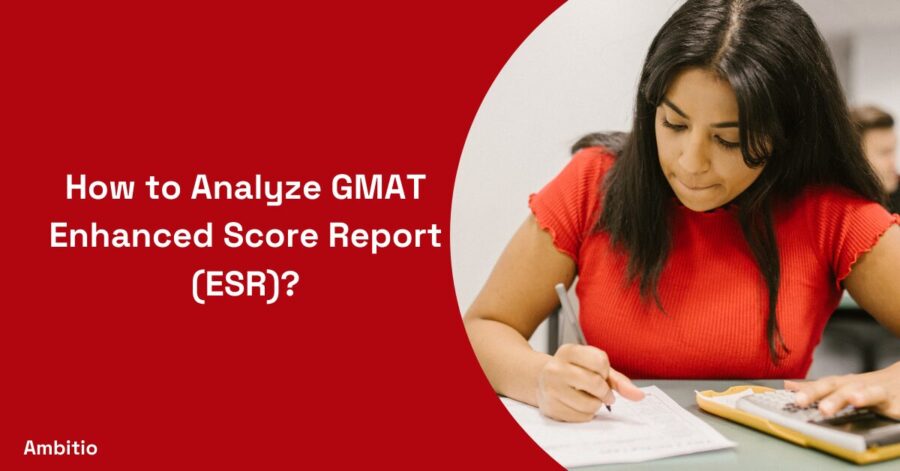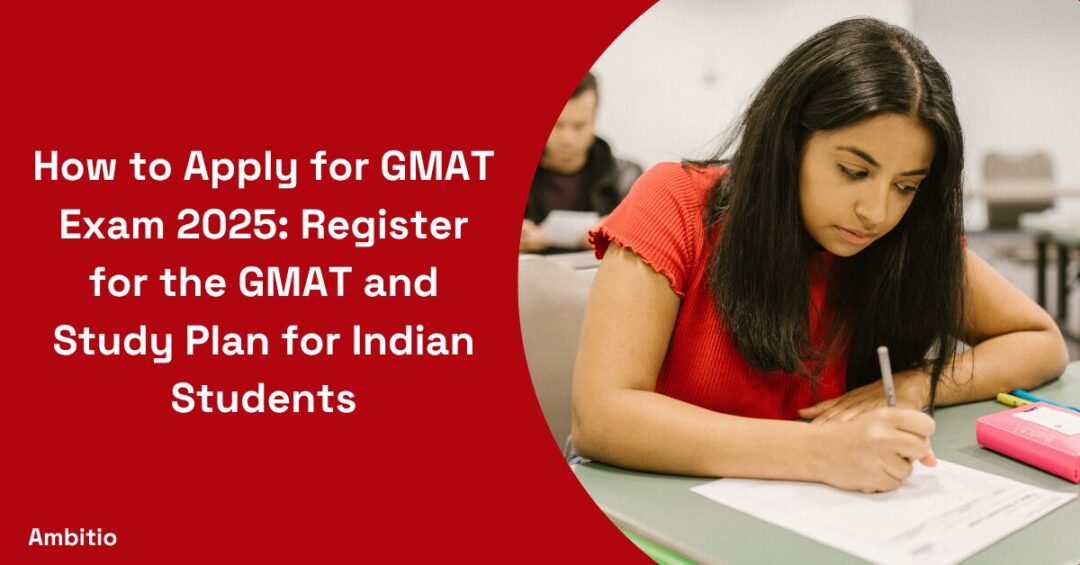16 December 2024
6 minutes read
What are GMAT synonyms and Antonyms?

Key Takeaways
- Focus on how words are used in passages to enhance comprehension and accuracy.
- Regularly practice with flashcards, apps, and word games to build a robust GMAT vocabulary.
- Recognize synonyms and antonyms to better evaluate arguments and answer critical reasoning questions.
The Graduate Management Admission Test (GMAT) is a pivotal exam for aspiring business school students. Among the various sections of the GMAT, the verbal section poses significant challenges, particularly the questions related to synonyms and antonyms. This guide aims to provide a detailed understanding of synonyms and antonyms in the context of the GMAT, including strategies for identifying them and tips for enhancing your vocabulary.
GMAT Verbal Section
The GMAT Verbal section assesses your ability to read and understand written material, evaluate arguments, and correct written English. It includes three question types:
Reading Comprehension
Reading Comprehension tests your understanding of passages and asks questions about the main idea, details, inferences, and the author’s tone or purpose.
Critical Reasoning
GMAT Critical Reasoning evaluates your ability to analyse arguments by identifying assumptions, strengthening or weakening the argument, and drawing conclusions.
Sentence Correction
GMAT Sentence Correction examines your grammar and sentence structure skills, focusing on identifying and correcting grammatical errors and improving sentence clarity.
What are Synonyms and Antonyms in GMAT?
The GMAT does not feature questions specifically targeting synonyms and antonyms. Instead, the questions in the GMAT Verbal section is designed to assess a candidate’s ability to understand and analyse written material, evaluate arguments, and correct written English in a business context. The three main areas tested are Reading Comprehension, Critical Reasoning, and Sentence Correction.
While vocabulary knowledge is helpful, it is not directly tested through synonyms and antonyms. Instead, the GMAT focuses on understanding complex texts, identifying logical flaws, and correcting grammatical errors. For example, Reading Comprehension questions might require you to interpret the meaning of words in context, while Sentence Correction questions test your understanding of grammar and sentence structure.
To prepare effectively, focus on improving your overall verbal skills, including reading advanced materials, practicing critical reasoning, and refining your grammar. This comprehensive approach will help you perform well on the GMAT Verbal section.
Importance of Synonyms and Antonyms in Reading Comprehension
Here is why you should know synonyms and antonyms to solve Reading Comprehension questions.
- Clarifying Meanings: Synonyms help in identifying the meanings of unfamiliar words through context, making complex terms easier to understand.
- Grasping Key Details: Recognizing synonyms within the text aids in comprehending the overall message and essential details of the passage.
- Understanding Contrasts: Antonyms highlight contrasts and comparisons, essential for interpreting passages that present opposing viewpoints.
- Interpreting Arguments: Recognizing antonyms helps in accurately understanding and evaluating different arguments or perspectives discussed in the text.
- Answering Context Questions: A strong grasp of synonyms and antonyms aids in answering questions about the meaning of words in context or the author’s tone.
- Improving Efficiency: Mastering these linguistic tools allows test-takers to navigate passages more efficiently, saving time during the test.
- Boosting Performance: Overall, a solid grasp of synonyms and antonyms improves reading comprehension skills, providing a key strategy for tackling GMAT Reading Comprehension questions.
Importance of Synonyms and Antonyms in Critical Reasoning
Knowing synonyms and antonyms is important in solving the Critical Reasoning questions of the GMAT verbal section for several reasons:
- Understanding Complex Vocabulary: Synonyms help decipher the meanings of challenging words, ensuring you grasp the nuances of the arguments presented.
- Identifying Key Arguments: Recognizing synonymous terms helps identify main points and supporting evidence, which is crucial for evaluating arguments.
- Recognizing Opposing Viewpoints: Antonyms are essential for detecting contrasting ideas or counterarguments, aiding in understanding the structure of the argument.
- Evaluating Answer Choices: Many answer choices use different wording to express similar or opposite ideas. Knowing synonyms and antonyms helps in accurately comparing and evaluating these choices.
- Clarifying Assumptions and Conclusions: Understanding how words relate can clarify implicit assumptions and the logical flow between premises and conclusions.
Overall, a strong grasp of synonyms and antonyms enhances critical reasoning skills, allowing for more precise and efficient analysis of the arguments in the GMAT verbal section.

Importance of Synonyms and Antonyms in Sentence Correction
Understanding synonyms and antonyms is essential for tackling Sentence Correction questions in the GMAT verbal section for several reasons.
- Identifying Correct Word Usage: Synonyms help in selecting words that fit the context appropriately, ensuring that the sentence conveys the intended meaning.
- Understanding Sentence Meaning: Recognizing synonymous terms aids in understanding the overall meaning of the sentence, which is essential for identifying errors and correcting them.
- Detecting Redundancy: Knowledge of synonyms can help spot redundant words or phrases, allowing for more concise and precise sentences.
- Recognizing Subtle Differences: Antonyms highlight subtle differences in meaning, helping to choose words that accurately reflect the sentence’s intent.
- Improving Sentence Clarity: Using synonyms and antonyms can improve sentence clarity and coherence by ensuring that the chosen words fit well together.
- Evaluating Answer Choices: A strong grasp of synonyms and antonyms allows for better comparison of answer choices, making it easier to eliminate incorrect options and select the best one.
English Synonyms and Antonyms
Here is a comprehensive guide to commonly used words along with their synonyms and antonyms, which are particularly helpful for solving the GMAT verbal section.
| Common Word | Synonym | Antonym |
|---|---|---|
| Anticipate | Expect, Foresee | Doubt, Distrust |
| Afflict | Distress, Torment | Comfort, Soothe |
| Appreciate | Value, Esteem | Depreciate, Criticize |
| Burden | Load, Encumbrance | Relief, Aid |
| Candid | Honest, Frank | Deceptive, Dishonest |
| Confound | Confuse, Perplex | Clarify, Enlighten |
| Correct | Accurate, Right | Incorrect, Wrong |
| Draw | Pull, Attract | Push, Repel |
| Enhance | Improve, Boost | Diminish, Weaken |
| Express | Convey, Articulate | Suppress, Conceal |
| Generous | Benevolent, Kind | Stingy, Selfish |
| Improve | Enhance, Refine | Worsen, Deteriorate |
| Involve | Engage, Include | Exclude, Ignore |
| Lack | Absence, Deficiency | Abundance, Surplus |
| Laugh | Giggle, Chuckle | Cry, Sob |
| Mock | Ridicule, Tease | Praise, Commend |
| Objective | Goal, Aim | Subjective, Biased |
| Party | Celebration, Gathering | Isolation, Solitude |
| Phrase | Expression, Idiom | Silence, Un expression |
| Practice | Rehearse, Exercise | Neglect, Ignore |
| Publish | Release, Distribute | Conceal, Suppress |
| Refer | Mention, Cite | Ignore, Overlook |
| Restrict | Limit, Constrain | Free, Liberate |
| Select | Choose, Pick | Reject, Dismiss |
| Sentence | Phrase, Clause | Fragment, Incomplete |
| Synonym | Equivalent, Same | Antonym, Opposite |
| Vague | Unclear, Ambiguous | Clear, Definite |
| Verbal | Oral, Spoken | Written, Nonverbal |
| Withdraw | Remove, Retreat | Advance, Approach |
Strategies to Improve Vocabulary for the GMAT Verbal Section
Here are certain tips that you can consider following to enhance your vocabulary for the GMAT Verbal Section.
- Read Regularly: Engage with diverse materials such as newspapers, magazines, and academic journals to expose yourself to new words and improve your English vocabulary.
- Use Flashcards: Create flashcards for new words, including their meanings, synonyms, and antonyms. This method helps in mastering a list of synonyms and antonyms. Review them daily to prepare for the GMAT vocabulary section.
- Practice with Apps: Use vocabulary-building apps designed for competitive exams like GMAT, GRE, and CAT. These apps often include practice tests that simulate real exam conditions.
- Learn Roots, Prefixes, and Suffixes: Understanding the building blocks of words can help deduce meanings of unfamiliar terms. This is crucial for recognizing English synonyms and antonyms.
- Engage in Word Games: Play games like Scrabble, crosswords, and word puzzles to make learning fun and effective. These games are commonly used to enhance verbal ability.
- Maintain a Vocabulary Journal: Write down new words you encounter, along with their definitions and usage in sentences. This journal can be a comprehensive guide for your studies.
- Use New Words in Conversation: Practice incorporating new vocabulary into your daily conversations and writing, aiming to score high in verbal sections of competitive exams like SSC and IBPS.
- Read GMAT Prep Material: Study GMAT-specific vocabulary lists and practice with sample questions and practice tests. This helps in learning words that are commonly used in the GMAT Adaptive test.
- Review Frequently: Regularly revisit and review the words you’ve learned to reinforce retention. This is important for long-term vocabulary improvement and achieving the correct answer in multiple-choice questions.
- Seek Contextual Understanding: Focus on understanding how words are used in context rather than just memorizing definitions. This helps avoid being confounded by tricky questions and ensures you can retrieve the correct meaning during the exam.
GMAT Vocabulary Practice Questions
Here are a few sample verbal questions and you can expect similar in your GMAT question paper.
1. Select the word that is most similar in meaning to the given word.
Abate
a) Increase
b) Worsen
c) Diminish
d) Initiate
Answer: c) Diminish
2. Select the word that is most opposite in meaning to the given word.
Verbose
a) Concise
b) Talkative
c) Detailed
d) Clear
Answer: a) Concise
3. Choose the word or phrase that best completes the sentence.
The CEO’s speech was so __________ that everyone left the meeting feeling inspired and motivated.
a) Monotonous
b) Eloquent
c) Ambiguous
d) Ineffective
Answer: b) Eloquent
4. Identify the meaning of the underlined word based on the context of the sentence.
Despite the seemingly vague instructions, the team managed to complete the project successfully.
a) Detailed
b) Clear
c) Unclear
d) Precise
Answer: c) Unclear
5. Choose the word that best matches the meaning of the underlined word in the sentence.
The scientist’s hypothesis was bolstered by the new data, leading to further investigation.
a) Weakened
b) Supported
c) Criticized
d) Ignored
Answer: b) Supported
Conclusion
Mastering synonyms and antonyms is vital for excelling in the GMAT Verbal section. By enhancing your vocabulary through consistent practice and strategic learning, you can improve your reading comprehension, critical reasoning, and sentence correction skills, ultimately helping you crack the GMAT with a high score.
Elevate your GMAT performance to new heights with Ambitio’s advanced preparation platform. Our holistic approach to GMAT prep ensures you have the knowledge, skills, and strategy to excel on every section of the exam, propelling you toward your target business school with confidence.
FAQs
Can reading non-GMAT materials help improve my vocabulary?
Absolutely. Reading a variety of materials, including newspapers, magazines, and literature, can help expand your vocabulary and improve your overall verbal skills for the GMAT.
How do I tackle unfamiliar words in the GMAT verbal section?
Use context clues to infer the meaning of unfamiliar words, and eliminate answer choices that don’t fit the context of the passage or sentence.
Can practicing synonyms and antonyms improve my GMAT score?
Yes, practicing synonyms and antonyms can enhance your comprehension and reasoning skills, indirectly improving your performance in the verbal section.
Are there specific vocabulary lists for the GMAT?
Yes, there are GMAT-specific vocabulary lists available in prep books and online resources, which include commonly tested words and their meanings.
Do GMAT prep courses cover synonyms and antonyms?
Most GMAT prep courses cover vocabulary indirectly through reading comprehension, critical reasoning, and sentence correction exercises.
How can I improve my vocabulary for the GMAT?
Improve your vocabulary by reading advanced materials, using flashcards, practicing with apps, and engaging in word games like crosswords and Scrabble.

You can study at top universities worldwide!
Get expert tips and tricks to get into top universities with a free expert session.
Book Your Free 30-Minute Session Now! Book a call now




























